By RENEE STOVSKY
Erin Berquist grew up in Santa Barbara, California, spending much of her time at her grandmother's 160-acre ranch in the mountains nearby. The ranch has no electricity; her grandma, 85, an Ohlone Indian (formerly known as the Costanoans), lives by lamplight and woodburning stove. That lifestyle, and its deep connection with nature, impacted Berquist profoundly, she says.
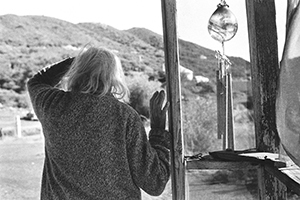
Carrie Berquist, an Ohlone Indian shown here surveying her ranch in Santa Barbara County, inspired her granddaughter Erin Berquist's commitment to environmentalism. The younger Berquist, a nurse at Sierra Nevada Memorial Hospital in Grass Valley, California, is a Nurse Climate Champion within the CommonSpirit Health system.
"It's my spiritual spot — the reason why I think I'm so passionate about environmental issues," says Berquist.
Now 39, Berquist has been a registered nurse at Sierra Nevada Memorial Hospital in Grass Valley, California, for 15 years, first as a floor nurse and, for the last five years, working in wound care. Since 2008, she's also been a charter member of the "Green Team," the hospital's sustainability team, which works to study its flow of trash and recycling, and how to best use its purchasing power to reduce greenhouse gas emissions.
"As soon as I began my nursing career, I began noticing how much waste a hospital produces," she recalls. "While we are trying to heal bodies, we are simultaneously destroying the planet."
With the encouragement and collaboration of like-minded colleagues in the CommonSpirit Health system — including Sr. Mary Ellen Leciejewski, OP, system vice president for environmental sustainability, and Laura Seeman, director of mission integration and community health for Sierra Nevada Memorial — Berquist felt she was having some impact at the hospital.
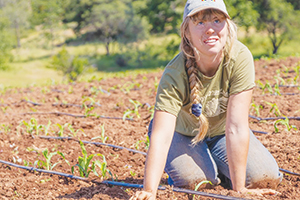
Kale Riley weeds corn plants at Mountain Bounty Farms, a 50-acre family farm on San Juan Ridge near Nevada City, California. The farm supplies organic produce to Sierra Nevada Memorial Hospital's café.
Sandra Boyd
Beyond her focus on trash management, she was able to bring together her volunteer work at Sierra Harvest, a nonprofit that connects Nevada County families to fresh, seasonal food, to the hospital, which is seeking grant support for a pilot program of prescribing local organic produce for patients with diabetes and heart disease.
At the same time, Berquist was also trying to recruit co-workers through social media to get them involved in environmental causes. Sadly, she realized she was "more passionate than most" in attacking the problems associated with climate change.
Challenge accepted
But last year, Berquist says she was fortunate to attend a CleanMed conference for leaders in health care sustainability. There, she listened to a Practice Greenhealth presentation and learned about the Nurses Climate Challenge, an online educational program that focuses on establishing a foundational understanding of the health impacts of climate change and the opportunities for nursing action.
She enrolled in the program, became a Nurse Climate Champion upon completion, and used its resources to create a 90-minute class, "Climate Change Represents the Greatest Potential Threat of the Century," which she co-presented with the public health officer of Sierra County, Dr. Ken Cutler, for 28 local physicians at Sierra Nevada Memorial on Jan. 27.
It was a personal and professional achievement for her, and one she hopes to repeat.
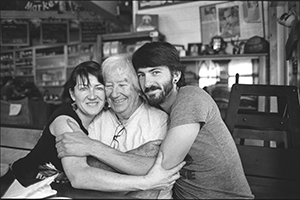
Erin Berquist, left, and her brother, Mark Berquist, enfold their grandmother Carrie Berquist. The elder Berquist inspires her granddaughter's environmentalism by living simply and in harmony with nature on her California ranch.
"The Nurses Climate Challenge has been eye-opening for me. There was no template for my environmental work before; I always felt like I was creating as I went along. This program made so much wonderful material available to me. Because I am dyslexic, I'm really nervous about public speaking. But the combination of my passion and this kind of support gave me the confidence to do the presentation," says Berquist.
Ailing planet, sicker people
The idea for the Nurses Climate Challenge began in 2017 when Shanda Demorest, a faculty member at the University of Minnesota School of Nursing, reached out to Health Care Without Harm and the Alliance of Nurses for Healthy Environments to forge a partnership to increase nursing engagement around climate change.
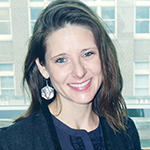
Demorest
Climate change, reasoned Demorest, is linked to so many health impacts. "Poor air quality can exacerbate asthma and COPD. The spread of vector-borne disease can worsen outbreaks of malaria, Lyme disease and West Nile virus. Heat-related illnesses, heightened allergies, malnutrition and diarrhea can be more prevalent," she says. "And mental health issues, such as anxiety, depression and PTSD, can result from community and habitat loss due to natural disasters — floods, wildfires — that may even cause forced mass migration.
"Sadly," she continues, "those who are most vulnerable to such health impacts are typically people with the fewest resources to combat it — the elderly, low-income communities and communities of color, and people with chronic illnesses."
Straight talk
Demorest knew that Gallup polls consistently rank registered nurses as the nation's most trusted professionals. With nearly
4 million RNs in the U.S., they also make up the largest component of the health care workforce. So why not employ them in improving public health by addressing environmental concerns?
The problem, Demorest learned, was a gap in nurses' knowledge about the intersection of climate and health. To tackle that, Health Care Without Harm and the Alliance of Nurses for Healthy Environments joined together with Demorest to produce content that drew upon the best science available — research findings from the National Climate Assessment, the Centers for Disease Control and Prevention, the American Public Health Association, the World Health Organization and the Intergovernmental Panel on Climate Change.
Then that research was packaged and presented in a way that would engage nurses to act regionally to mitigate environmental hazards in health care workplaces and, ultimately, to improve patient outcomes.
Rapid response
The Nurses Climate Challenge was launched in May 2018 with the goal of preparing Nurse Climate Champions to educate 5,000 nurses and other health professionals within a year with online resources that help them in planning and hosting educational sessions about climate change.
That goal, says Demorest, was reached in nine months. Today there are Nurse Climate Champions helping to educate others across 26 countries and 49 states. Primarily a U.S.-based initiative, it is now working with the Canadian Association of Nurses for the Environment and Health Care Without Harm in Europe to expand the program. It is also involved in a campaign geared toward nursing schools; 18 of them are now in partnership with the Nurses Climate Challenge, using its online content to educate students before they begin their nursing practice.
And the original goal of registering those 5,000 nurses to become climate champions? It's now been increased to reach 50,000 health professionals by 2022.
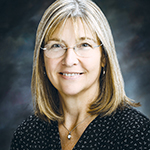
Schenk
Among them is Beth Schenk, executive director of environmental stewardship for Providence St. Joseph Health and adjunct research professor at Washington State University College of Nursing in Spokane.
Schenk says her trajectory in environmental activism began many years ago, when she was a critical care nurse at Providence St. Patrick Hospital in Missoula, Montana. She recognized there were opportunities to improve waste management in health care.
She began studying recycling in the 1990s and eventually earned a Ph.D. in nursing, studying environmental impacts in health care. Today she leads a systemwide commitment to reduce operational pollution while addressing environmental justice and climate resilience in the communities Providence serves, as well as a team to make her health care system carbon negative by 2030.
Schenk also has been instrumental in working with Demorest, Health Care Without Harm, the Alliance of Nurses for Healthy Environments and Practice Greenhealth to shape the Nurses Climate Challenge.
A big tent
"One of the strengths of the Nurses Climate Challenge is that it explains the science briefly and simply, in 15-minute, easily digestible segments. It is solution based, using clear examples to help people connect the dots between climate change and the problems it causes," she says.
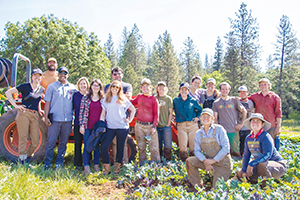
Nurses from Sierra Nevada Memorial Hospital, staff from Sierra Harvest and crew from Mountain Bounty Farms gather during a tour of Mountain Bounty Farms in 2019. Erin Berquist, a Nurse Climate Champion who volunteers with Sierra Harvest, wears a plaid shirt. Sierra Harvest works to build local markets for farmers and it connected buyers for the hospital's café with Mountain Bounty Farms.
Sandra Boyd
Schenk is using the challenge as a basis for presentations at St. Patrick Hospital; she estimates that by the end of 2019, 75% of the nurses there had already been involved in environmental education. A 2020 goal has been to educate personnel in other hospital departments, such as housekeeping, supplies and pharmacy, as well.
Schenk also uses the program with nursing students at both Washington State University and Montana State University. "For the most part, they do not need to be convinced that climate change is an issue; in fact, it is weighing heavily on them," she says. "They've already experienced wildfires, bad smoke days, snow melts, droughts, increases in Lyme disease and poor air quality. Agricultural life is changing in the northern Rockies. They are looking to learn ways to cope with a changing environment."
In addition to programs like the Nurses Climate Challenge, Schenk says Catholic health care is a leader in this work. "Our leaders understand our circumstances. We all hope to be true to our Catholic teachings on caring for creation," she says.